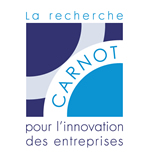Carnot MECD

Build better for a better living
Involved in national dynamics on all subjects relating to construction and interior design, the Carnot MECD Institute provides you with an R&D offer that anticipates energy, environmental and societal challenges of our time. The research carried out combines a multi-scale approach, from the material to the demonstrator.
Key figures
Fermer
Key figures
| Permanent staff (full-time equivalent) | 140 |
| PhD Students | 65 |
| Global budget | 17,9 M€ |
| Partnership incomes with industry | 5,3 M€ |
Contact
Fermer
Contact
MECD Carnot Institute
1 Rue des Longs Réages
28230 EPERNON
France
Céline VINOT
Director
+33 (0)2 37 18 48 97
c.vinot[a]mecd.fr
Parent institutions
Fermer
Parent institutions
- ASSOCIATION RÉSEAU CTI
- CENTRE D'ÉTUDES ET DE RECHERCHE DE L'INDUSTRIE DU BÉTON
- CENTRE TECHNIQUE DE L'INDUSTRIE DE LA CONSTRUCTION MÉTALLIQUE
- CENTRE TECHNIQUE DE MATÉRIAUX NATURELS DE CONSTRUCTION
- INSTITUT NATIONAL DES SCIENCES APPLIQUÉES DE TOULOUSE
- INSTITUT TECHNOLOGIQUE FORÊT CELLULOSE BOIS AMÉNAGEMENT
- UNIVERSITÉ CLERMONT AUVERGNE - INSTITUT PASCAL
- UNIVERSITÉ TOULOUSE 3 - PAUL SABATIER

